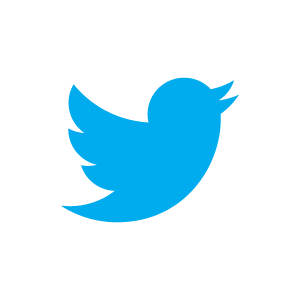“The phone is at the forefront of the future” (imagine those words spoken with cave-like echo)
Have you heard the news? Not the Elvis Presley, “Have you heard the news, there’s good rockin’ tonight!”
No, this news:
“Jay-Z has always been a trendsetter and he is continuing that by being the first artist to distribute his music and connect with fans in a mobile environment. This is a move to watch.”
From the company’s press release we learn the following:
“Technology now provides us with the opportunity to deliver music in new ways.”
That sentence could just as easily have applied to the development of the pianoforte, aka, the “piano,” in the 18th century. But this new technology sentence is used in connection with Jay-Z.
“The…phone is at the forefront of the future which includes buying music instantly and taking it with you wherever you go.”
“Buying music instantly…” That “instant” aspect of the trick was what Amazon accomplished in 1999 with its infamous “one-click” patent. This “ooh aah, imagine that!” patent allows a customer the ease to only click a mouse once and be done with the purchase. It’s fast and simple. And despite millions of people using it, thousands assailed the U. S. Patent and Trademark Office for granting such an “obvious” (and dunce-headedly simpleminded) patent. The E. U. is often not as slipshod as the U. S. in awarding patents and refused Amazon’s one-click patent application stating that the patent lacked the “inventive step.” Again, the company’s quote above is used in conjunction with Jay-Z.
More of the phone hype:
“…phone represents the company’s commitment to music and developing devices that match the lifestyles of consumers…”
and
“…this relationship pairs the leader in mobility with a leading artist to deliver music and the full fan experience in a unique new way.”
And now some more Jay-Z hype from the company’s same press release:
“An entrepreneur at heart, Jay-Z has risen to the top of the rap genre since starting his own record label, Roc-a-Fella Records…”
This Jay-Z/Phone news, or Phone/Jay-Z news, has been reported in dozens of online and offline media outlets and appears to be the marriage of digital distribution, hip hop and mobile technology. But wait – that’s a marriage of three (3). Even the U. S. Supreme Court won’t let three (3) be united as one (1). But I digress.
________________________________________________________________________
What’s noteworthy about what I’ve written above is that it is not from an important tech/mobile/hip hop/branding/endorsement news story of July 2013 but from an important tech/mobile/hip hop/branding/endorsement news story of December 2003, ten years ago! A few of the statements above are true – the story does involve a new phone, new music included with that phone, new and exciting branding news, and Jay-Z. I left out the name of the company from 2003 that joined forces with Jay-Z, as well as the names of the new phone and Jay-Z’s new music.
The phone was the then new Nokia 3300.
The music was the then new Jay-Z Black Album.
Back in December 2003, the Jay-Z phone foray began when Nokia offered a “Black Phone” that was the companion cell phone to Jay-Z’s “Black Album.” This was billed as a music and wireless industry first. (Very coincidentally, I was expert witness in a matter involving DJ Danger Mouse’s Grey Album, a brilliant and creative mashup of Jay-Z’s Black Album, Jay-Z’s Black Album release that featured only vocal tracks, and the Beatles White Album aka The Beatles. The Grey Album is still the most famous/infamous mashup ever and an enormous subject on which I should elaborate at another time.)
Co-branding and the unusual affiliation between musician(s) and tech companies was unusual in 2003 but the biggest co-branding between a mobile music device and a musician, however, came one year later, in 2004, when Apple introduced its U2 iPod which featured the new U2 album, How To Dismantle An Atomic Bomb. The new red and black iPod was a success in its limited special edition release. In a red and black case it looked like this.
________________________________________________________________________
The biggest and most hyped music news of July 2013 seems to be the new alliance between Jay-Z and Samsung. This deal is very good for Jay-Z as Samsung has bought 1 million copies of Jay-Z’s new album, Magna Carta Holy Grail. (Warning – Magna Carta Holy Grail begins with Justin Timberlake singing. And he’s singing in a very high register. This is a hip hop album? A hip hop album that does not begin with a skit?) Jay-Z received $5 million for the 1 million copies. Magna Carta Holy Grail will be free for the first 1 million Samsung phone users who download the app.
Articles about the Jay-Z/Samsung alliance are found in
My favorite of these is this particular Time story for which I was interviewed:
What has interested me for several years, and is discussed in the Time article, are albums as apps and artists who create apps and content – music and visual – for apps. My favorite has been Bjork’s massive and adventurous, Biophilia. Here is a “tour” of the app – how it was conceived, designed and implemented. Tour of Bjork’s Biophilia
________________________________________________________________________
What negatives or potential negatives are there in this Samsung Jay-Z relationship?
Privacy
Privacy. A hip hop album and privacy? As with anything that is digital, online, travels online and especially resides in a device that relies on the Internet for its transmission, there will be privacy concerns. Because of all these aspects, there will also be legal ramifications, data tracking and privacy concerns, and new bizarre powers enabled by this potent concoction of technologies. For example, should Jay-Z be able to track you via GPS? (It’s one thing to be on an artist’s email list but quite another to be cyber-scrutinized by an artist. From NME: Privacy Issues Raised Over Terms And Conditions Of Jay-Z’s Samsung App.
The privacy problem is even more problematic (too easy and obvious a Jay-Z “99 problems” joke) as the Electronic Privacy Information Center (EPIC) is asking the Federal Trade Commission (FTC) to investigate. This is not what one might suspect from many hip hop/rock/pop albums – warning stickers about lyric content that were voluntarily “awarded” (stuck on) the album packaging. No, I would suspect that this is the first album to ever warrant federal government inspection over privacy concerns as data mining meets music meets telecoms meets Internet.
Leakage aka Piracy
Leakage aka Piracy. Because it is digital, it should be no surprise that Jay-Z’s album-inside-a-Samsung has already been hacked onto an HTC device. Soon, Magna Carta Holy Grail will leave the Samsung Galaxy and be all over the more impressive galaxy.
Here is another account of the leak of Magna Carta Holy Grail (Spin, July 4, 2013).
It’s been hacked. It’s been leaked. It’s been copied. It’s been transmitted. Ho hum. It’s digital. This happens to digital.
________________________________________________________________________
Will Jay-Z/Samsung turn out to be as forgettable 10 years later as Jay-Z/Nokia? Or the Apple U2 iPod? (Speaking of the iPod – just what is an iPod? Are there many iPods in 2013? Aren’t small dedicated music playing mobile devices now subsumed within every mobile phone? Sadly, iPods and mobile devices could hold much more content than they do but the tech companies would prefer keeping the devices small and the clouds large so that we will continue to buy and rent all of our intellectual property.
It’s not enough to love your IP – you need to pay for it in
many ways over many days and many decades.






